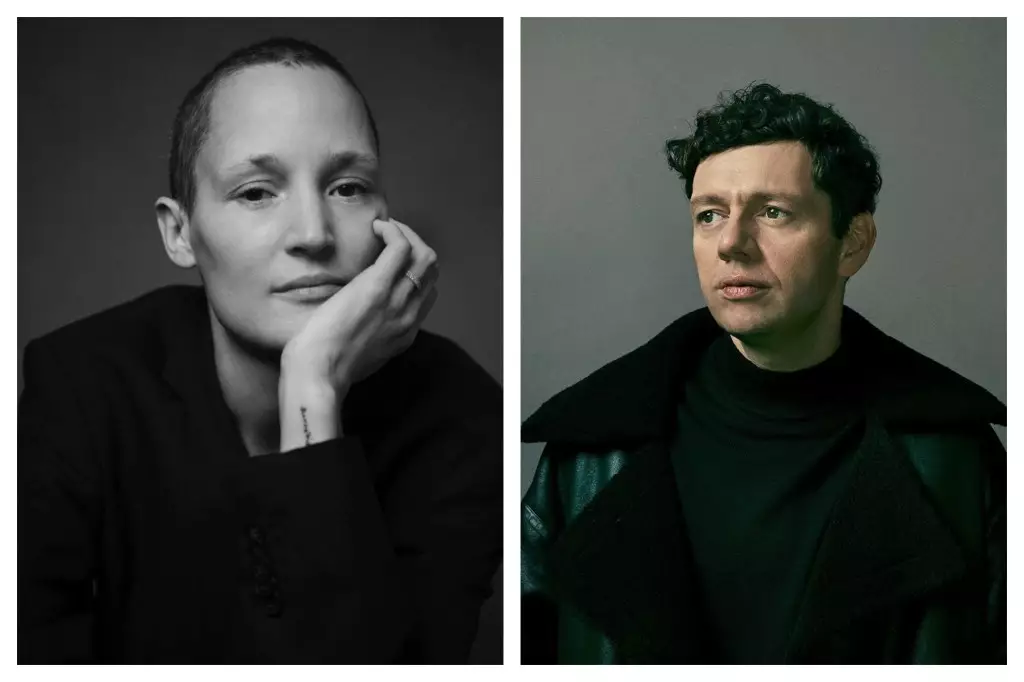The cinematic landscape is ever-evolving, giving birth to projects that demand our attention and understanding. “The Idiots,” helmed by Polish directors Małgorzata Szumowska and Michał Englert, is one such work poised to challenge our perceptions and engage with the tumultuous themes of love, addiction, and literary legacy. With a formidable cast including Vicky Krieps and Christian Friedel, alongside the talents of Aimee Lou Wood and Johnny Flynn portraying the tumultuous couple Fyodor Dostoyevsky and his wife Anna, this project promises an immersive exploration of life’s contradictions.
The story is drawn from Andrew D. Kaufman’s novel, “The Gambler Wife: A True Story of Love, Risk, and the Woman Who Saved Dostoyevsky.” It centers around Dostoyevsky’s honeymoon gone awry in Baden, where the couple’s passionate union descends into chaos through the folly of gambling—an apt metaphor for the art of living itself. This adaptation is a marriage of poignant storytelling and fine artistry, as Szumowska—whose directorial prowess is backed by numerous accolades—brings her unique vision to the screen. The film becomes not just a retelling of a historical narrative but an exploration of the relational dynamics that compel us toward self-destruction.
A Captivating Cast and Collaboration
The stellar ensemble cast is not merely a collection of names; each actor is poised to bring to life the intricate web of emotional turbulence that defined Dostoyevsky and Anna’s relationship. Krieps and Friedel, while occupying supporting roles, are integral in fleshing out the character dynamics, serving as a counterpoint to the lead performances of Wood and Flynn. This synergy is essential in effectively portraying Dostoyevsky’s complex psyche and his often fraught connections with women, threading together themes of dependency and turmoil.
Szumowska and Englert’s collaboration in this project signifies a return to their thematic explorations of human vice and virtue. Their previous works have delved into the human condition with sensitivity and incisive criticism, and it’s this understanding that they translate onto the screen. Their artistry embraces the tumult of human emotions, inviting the audience into a visceral experience rather than a mere passive observation.
Reflections on Legacy and Human Flaws
However, one cannot overlook the narrative risk being taken. The commercial flop of the original novel at the time of its publication raises questions about audience receptivity toward tales of bias and emotional decay. Will the film version succeed in extracting contemporary relevance from a story steeped in historical weight? Or will it merely serve as an artistic memento, lost in translation?
Yet there lies undeniable power in storytelling rooted in the gritty truths of human relationships, especially when it channels Dostoyevsky’s own experiences—his flaws, his failures, and his unyielding drive toward understanding the depths of human nature. “The Idiots” seeks to elevate this historical moment into a profound exploration of individuality and connection, perhaps even shedding light on the chaotic dance of love and risk that the author portrayed with unmatched honesty.
In an age where romantic relationships can often resemble a gamble—a fleeting combination of chance and choice—this film is poised to resonate loudly with audiences yearning for authenticity amidst the artifice. Szumowska and Englert seem ready to plunge into uncharted emotional waters, resurrecting an era while engaging our present sensibilities. It is this piercing introspection that could very well set “The Idiots” apart as a powerful commentary on love’s duality.


Leave a Reply